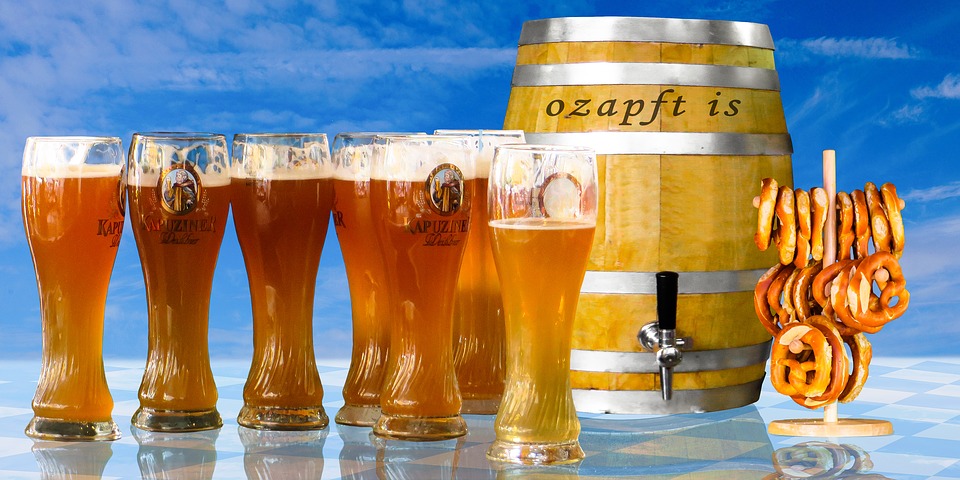From the 11th-13th October 2018, Leeds is hosting its very own ‘Oktoberfest’ celebration at the South Bank Depot, in homage to the traditional folk festival originating in Munich. In Bavaria, the festival itself has a long and remarkable history of over two hundred years, though in more recent times it has etched itself onto the imaginations of both Germans and non-Germans alike. It is for this reason that many cities across the globe have sought to mimic the festival, from its home in Munich to West Yorkshire, from Hong Kong all the way to Brazil… People from all over the world are given the opportunity to throw on their Tracht (traditional Bavarian garments such as Lederhosen and Dirndl), grab a Maß of beer and experience what it is to be a Bavarian!
But where did it all begin and is it just a ‘beer festival’?
Long before its reputation as a ‘beer festival’, the original Oktoberfest began as a wedding celebration between crown prince Ludwig (later King Ludwig I) of Bavaria and Princess Therese of Saxe-Hildburghausen on the 12th October 1810. Ludwig gifted his bride a meadow and named it Theresienwiese (literally ‘Therese’s Meadow’), inviting the citizens of Munich to join in the celebrations with a series of festivals and horse races. Despite their ill-fated marriage, the wedding festivities were so popular amongst the townspeople that they gathered annually on what is now known colloquially as the Wiesn, beginning the tradition of Oktoberfest. In times of geopolitical turmoil throughout history, the festival has been suspended or cancelled a total of 24 times, but has always returned to an ever-growing turnout year on year.
Last year alone, approximately 7.5 million people visited the Wiesn during Oktoberfest, passing through 34 tents over the 16-day event and consuming a massive 7 million litres of beer. Traditionally the types of beer served range from Helles (a light, pale lager) to Dunkles (a darker, malty lager), as well as traditional Bavarian Weißbier (literally ‘white beer’, though often translated as Weizenbier or ‘wheat beer’ due to its malted wheat content). To grasp the sheer scale of the festival: the population of the wider Leeds area today is roughly 800,000 people, meaning Oktoberfest welcomes around ten times the population of our community each year over roughly a two-week period!
Similar to the up-coming celebration in Leeds, many international replicas of Oktoberfest are tailored strictly towards adults and only welcome those above the age of 18, whereas in Munich the celebrations have maintained a sense of inclusivity and community spirit. Aside from the 14 larger beer tents for each popular Bavarian brewery (Hofbräu, Hacker-Pschorr, Augustiner, Löwenbräu…), the festival has countless fairground rides, oom-pah bands and food stalls serving traditional Bavarian foods, all attracting many families from the local area.
Despite many common misconceptions surrounding Oktoberfest, often dismissing the celebration as an excuse for a spot of day drinking, it’s clear that the festival and its ethos has truly earned its place in many cities all over the world. The festival has weathered many storms since 1810 but is now as popular as ever, bringing together communities just as effectively now as it did two hundred years ago!
Jess Beedle

